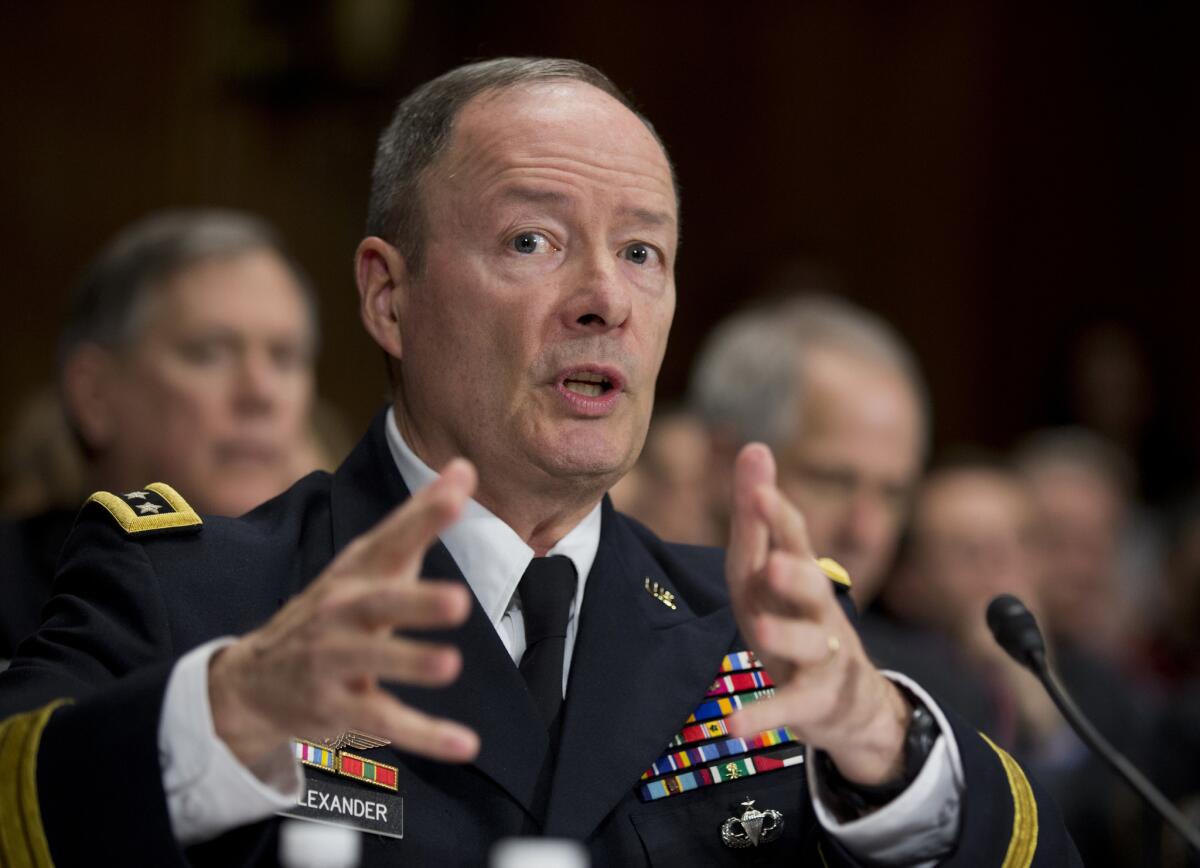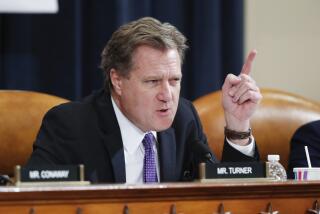Task force recommends changes at National Security Agency

WASHINGTON -- A presidential task force presented its recommendations to the White House on Friday on how to restore public confidence in domestic surveillance by the National Security Agency, which has been buffeted by leaks by former contractor Edward Snowden.
The independent panel submitted more than 40 recommendations for changes, said Caitlin Hayden, a spokeswoman for the National Security Council. She declined to provide any details, but a senior U.S. intelligence official said he did not believe the changes would fundamentally alter how the spy agency conducts operations.
“It’s going to be some tinkering, some window dressing,” said the official, who would not be named discussing sensitive deliberations.
Hayden said the White House review of surveillance would be completed in January, and President Obama would announce its results.
Although some Obama administration officials and outside experts had urged the White House to pick separate leaders for the NSA and the Pentagon’s Cyber Command, which conducts offensive cyber operations for the military, the official said the White House had decided to keep a single person in charge of both.
That means the NSA, which is both an intelligence and combat support agency, will continue to be led by a military commander and not a civilian, as at the CIA. Gen. Keith Alexander, who heads the NSA and Cyber Command, is retiring soon and his replacement has not been named.
The White House appointed the task force this summer in response to a torrent of leaks by Snowden that have produced unprecedented disclosures about secret NSA surveillance programs, including the bulk collection of domestic telephone data records. The White House is considering whether to discontinue that program or to have telephone companies, instead of the NSA, maintain the database of records.
Other changes already have been announced.
After Snowden revealed that the NSA was monitoring the telephone calls of leaders of allied countries, the White House ordered some of the surveillance suspended and began more closely overseeing other collection programs that had been on “autopilot,” as described by one official.
The task force members include Richard Clarke, a former U.S. counter-terrorism chief; Michael Morell, former CIA deputy director; Geoffrey Stone, University of Chicago law professor; Cass Sunstein, a former White House regulatory official; and Peter Swire, a former White House privacy counselor.
Twitter: @KenDilanianLAT
More to Read
Start your day right
Sign up for Essential California for news, features and recommendations from the L.A. Times and beyond in your inbox six days a week.
You may occasionally receive promotional content from the Los Angeles Times.






